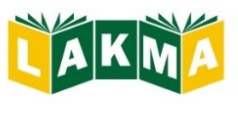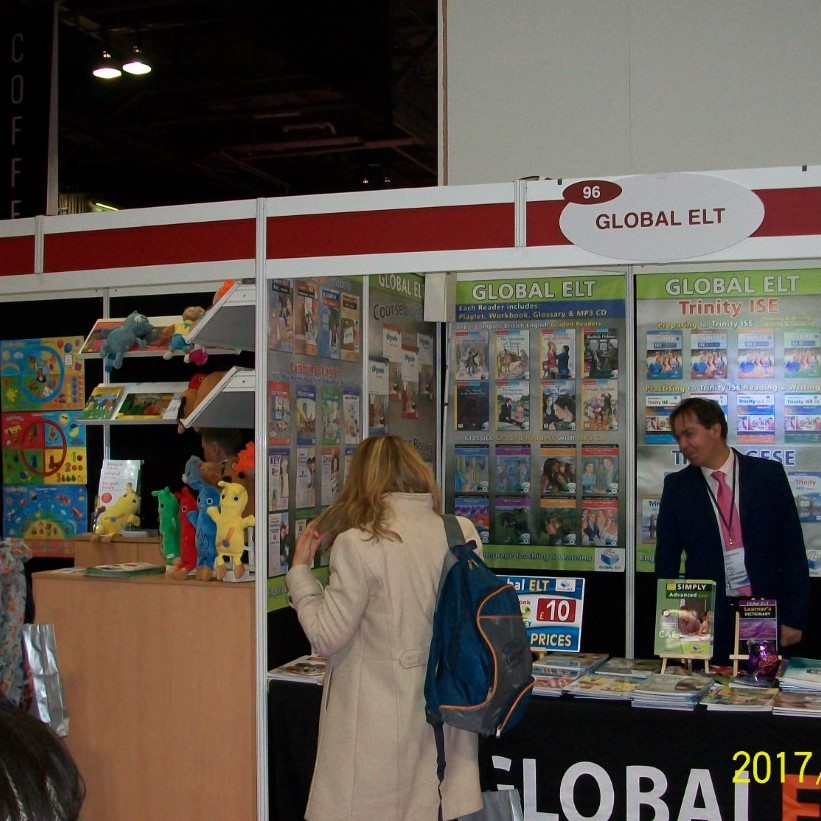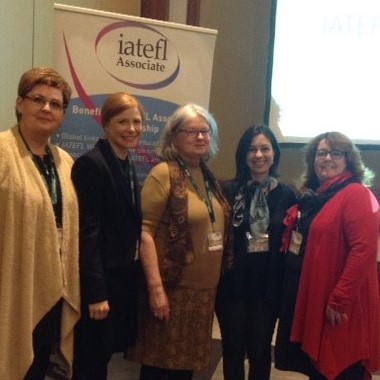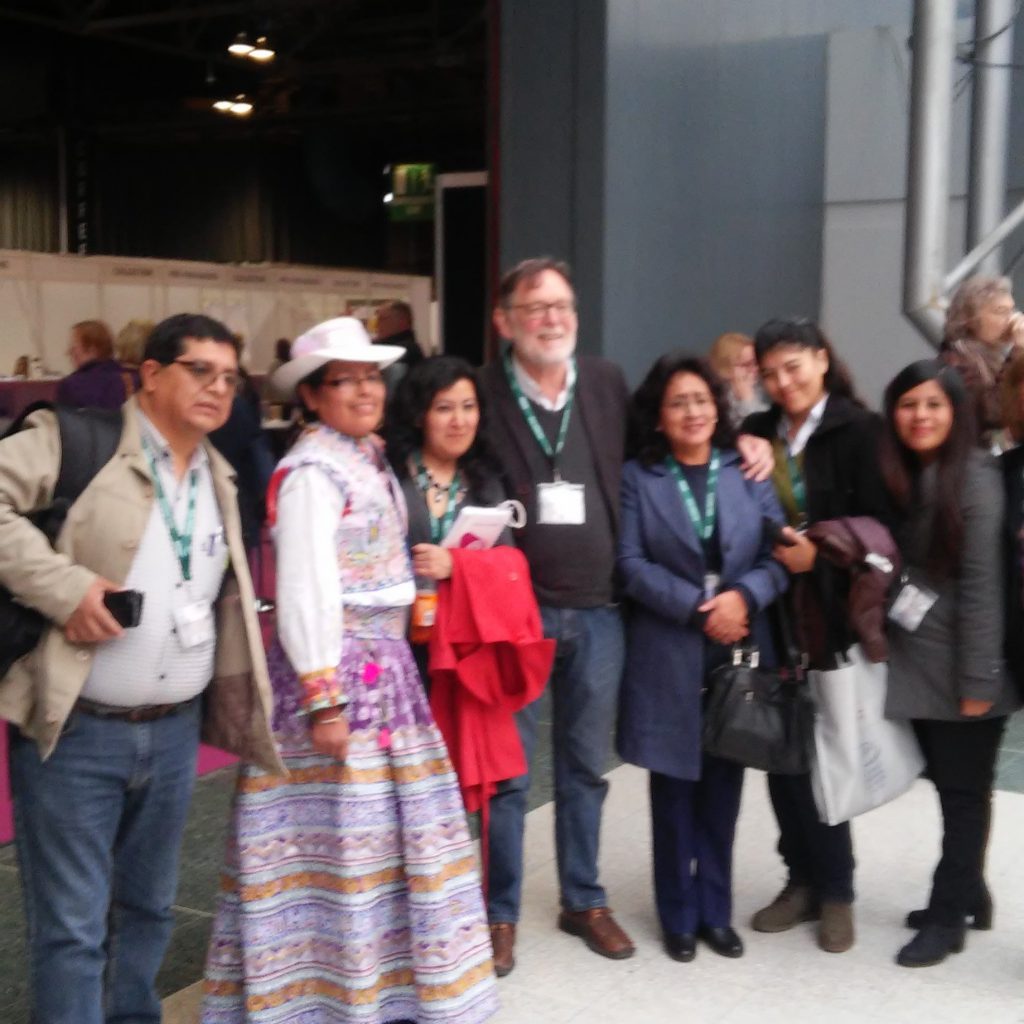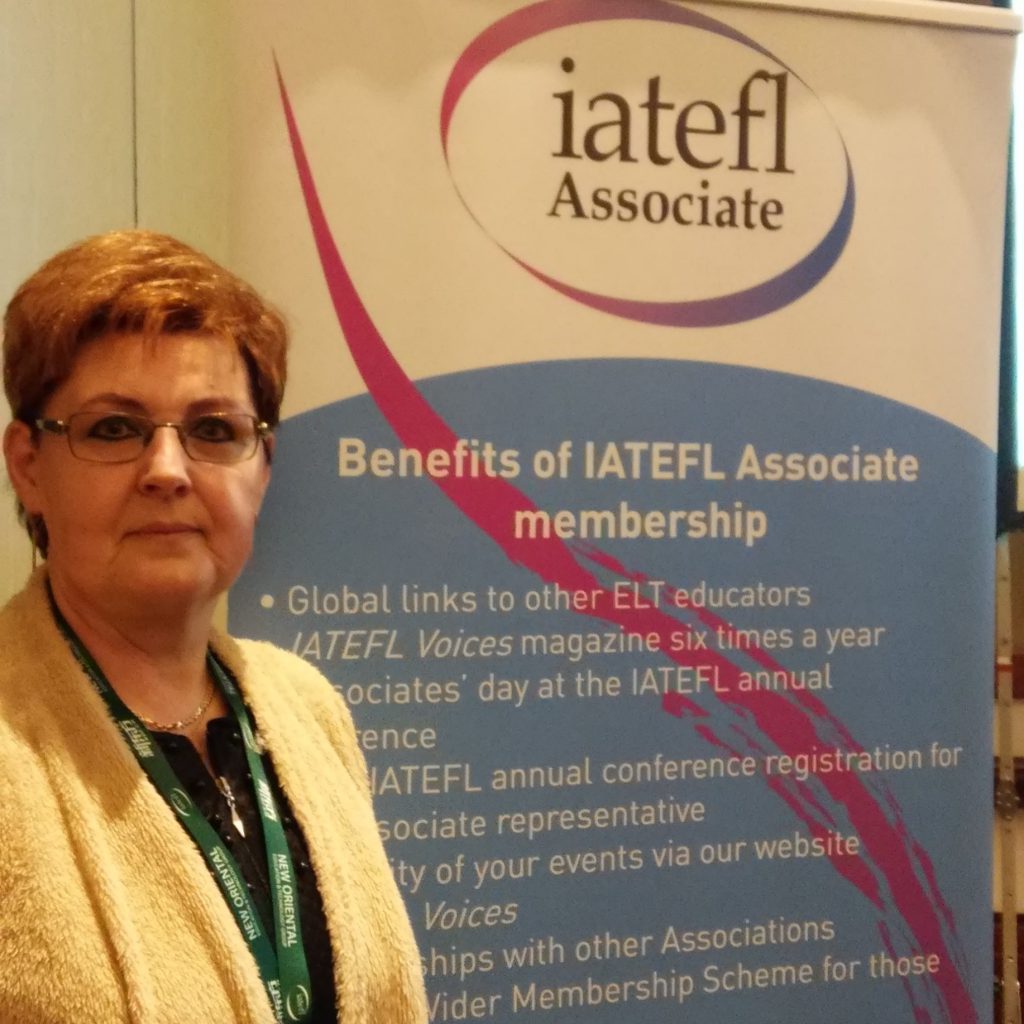Romualda Liutkuvienė: IATEFL Conference 2017, Glasgow
The IATEFL International Annual Conference & Exhibition is one of the main events in the ELT calendar. The conference brings together ELT professionals from around the world to discuss, reflect on and develop their ideas. It offers many opportunities for professional contact and development, and is a fantastic networking event. In 2017 it was held in Glasgow.
I was delegated by the LAKMA Board to represent LAKMA at the conference and this was a highly demanding task. I did my best to inform other representatives of associations about the activities we do in our country and to invite them to the LAKMA International Conference “ELT with and without Technologies 2017”. I also attended the IATEFL Associates professional development day on behalf of LAKMA.
The conference took place in the Scottish Exhibition Conference Centre. More than 2,500 ELT professionals from more than 100 countries participated at the conference and they could enjoy five plenary sessions and over 600 presentations consisting of talks, workshops, poster presentations, forums and a thrilling social programme. The delegates could also visit the Exhibition to have a look at the latest ELT books, materials and resources.
The conference was opened by the IATEFL President Marjorie Rosenberg. The first plenary was by Gabriel Diaz Maggioli, a teacher who applies the lessons learned in the classroom to his roles as writer, researcher, administrator and teacher educator: “Empowering teachers through continued professional development: frameworks, practices and promises”. The second plenary was by Sarah Mercer: “Connecting minds: language learner and teacher psychologies”; she stressed the fact that language learning is a deeply social and emotional undertaking for both teachers and learners and reflected on the fundamental role played by psychology. The third plenary was by J. J. Wilson: “ELT and social justice: opportunities in a time of chaos”. J.J Wilson has taught in Egypt, Lesotho, Colombia, England, Italy, and the US, and has trained teachers in 30 countries. He said that “teaching is never neutral. Through our methods, classroom persona, and the materials we use, teachers advocate certain values. These values depend on one’s beliefs – one’s conception of education and the teacher’s role”. The fourth plenary was by Jane Setter, Professor of Phonetics, Secretary of the British Association of Academic Phoneticians – “Where angels fear to thread: intonation in English language teaching”. And the last plenary session was by Imtiaz Dharker, a poet, artist and documentary film-maker. She was awarded the Queen’s Gold Medal for Poetry in 2014 and is recipient of the Cholmondley Award and a Fellow of the Royal Society of Literature. It was great pleasure to listen to her poetry.
I also enjoyed these sessions: “Grammar in the context of task: what, how and why?” by Jane Willis; “Managing diversity: are we blind to our blindness?” by Vinicius Nobre; “Critical thinking activities in the language classroom” by Richard Harrison; “Deskless teaching – a space odyssey” by Stephen Reilly; “Five steps to prepare your students for the 21st Century” by Natassa Manitsa; “Myths and monsters: teaching with technology” by Nicky Hockly.
In the evenings there were lots of opportunities to relax, get to know other delegates, and enjoy ourselves. For example, “Civic Welcome Reception and Ceilidh” which gave us an opportunity to meet the delegates from different countries and discuss the questions which are important to the teachers all over the world; “British Council Networking Event”, where we could meet some old friends and find new ones; “Sharing Stories” with David Heathfield and Andrew Wright, both professional storytellers, who have shared their experience of writing stories and storytelling; “Pecha Kucha in association with Ladybird” which was something new to me: Pecha Kucha, originating from the word “chitchat”, a Japanese term, describes the sound of conversation. Each speaker was allowed a slideshow of 20 images, each shown for 20 seconds, giving a total presentation time of six minutes and forty seconds before the next speaker was up, keeping presentations concise and fast-paced. It was really great!
I am grateful to the LAKMA Board for this chance of a lifetime – a unique opportunity to participate at the IATEFL conference. I have had a great time; I have learned a lot; I have made new friends and established contacts for future co-operation. It is a dream of every English teacher to participate at such an event and I feel highly honoured. I hope that the experience I have gained at the conference will help me improve my everyday work with my students and that I will be able to help other teachers, too, by sharing all the new ideas.
The home page of the Conference http://conference.iatefl.org/
The programme http://conference.iatefl.org/programme.html
IATEFL online https://iatefl.britishcouncil.org/2017
